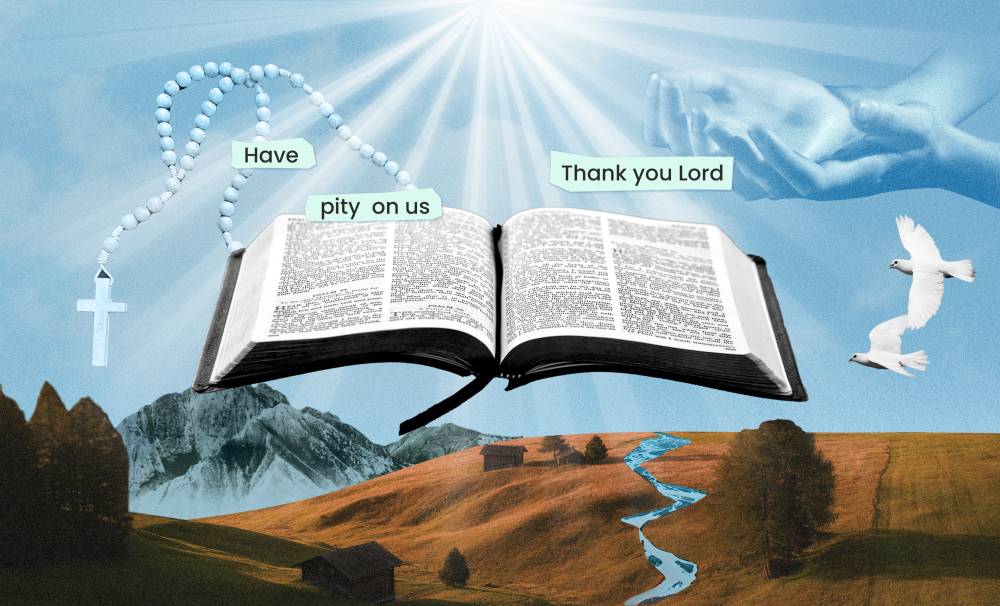The greatest grace of all

October 12, 2025 – 28th Sunday in Ordinary Time
Readings: 2 Kings 5:14-17; Psalm 98, R. The Lord has revealed to the nations his saving power.; 2 Timothy 2:8-13; Gospel – Luke 17: 11-19
There are three important graces we see in this Sunday’s Gospel that I enjoin you to reflect on and deepen.
The first grace is to know what your deepest desire is. The second is gratitude and humility. The third is the gift of a dynamic faith that is at the same time salvific and sending us off on a mission.
“They stood at a distance from him and raised their voices, saying, ‘Jesus, Master! Have pity on us!’” (cf. Luke 17: 11-19)
This is such a powerful expression of the deepest desire of the 10 lepers. What is our deepest desire, the desire that also gives us our deep gladness?
In the past two decades, we have been conducting formation programs for public school teachers and principals. We observed that there is a correlation between our woundedness, our deep gladness or desire, our healing, and the sense of mission flowing from this process.
Here, the woundedness is very clear, they were afflicted with leprosy. It was not only a physical affliction but also a social, emotional, and psychological one.
As lepers, they were complete outcasts from the community and subjected to many embarrassing restrictions.
For example, they had to stay a very specific distance away from the crowd. They carried a bell which they were supposed to ring as they shouted, “unclean, unclean.”
These are some of the “rules” the lepers during Jesus’ time had to contend with. Their cry for mercy was a cry for healing and hope.
What is yours, considering our deepest desires and hopes are almost always tied to our woundedness and brokenness? Like the lepers, we too cry for healing and for hope.
The Lord never turns down a cry for mercy. His very essence is mercy. As the title of Pope Francis’ book so aptly puts it, “The Name of God is Mercy.”
In his first homily as Pope, he pointed out, “The message of Jesus is mercy. For me, and I say this with humility, it is the Lord’s strongest message.”
To the request of the lepers, his act of mercy was to heal them. And how did they respond to this healing of mercy?
Perhaps they all rejoiced. They reunited with family and friends. They caught up with so many things that the years of isolation deprived them of. Nothing bad about this.
But there was a very distinct, distinguished response that set one apart—the grateful Samaritan. So very distinct since he was the least among the 10 you would have expected to show gratitude, being the odd man out.
You realize how gratitude, like mercy, overcomes division and differences. Such is its nature because of the underlying humility that nurtures gratitude in the heart and soul. Without humility, it would be difficult to be grateful, acknowledging grace is a gift.
Gratitude and humility are the graces that allow us to stand humbly before God to acknowledge his graciousness and to give glory to him.
Gratitude is the antidote to a multitude of sins and vices—entitlement, envy, greed, corruption, pride, and arrogance.
We again need to constantly check and ask, “Do I stand humbly with a grateful heart before God?” A line from Eucharistic Prayer II put it beautifully: “We thank you for counting us worthy to stand in your presence and serve you.”
It was this gratitude and humility that inspired the Samaritan leper to “[return], glorifying God in a loud voice; and he fell at the feet of Jesus and thanked him.”
This opened to him the greatest gift, the greatest grace of all. “Stand up and go; your faith has saved you.”
Jesus blessed him with the grace of salvation, a grace that always sends us forth in mission—“Stand up and go.”
This is the movement and dynamics of grace that begins with a deep desire for healing and wholeness. And putting our faith in Jesus, we cry out for mercy.
Jesus always responds in mercy—in whatever way. To be grateful for this leads us to a sharing in his mission—to proclaim the love and mercy of God.
It begins with “Have pity on us” and ends with “Stand up and go; your faith has saved you.”

















